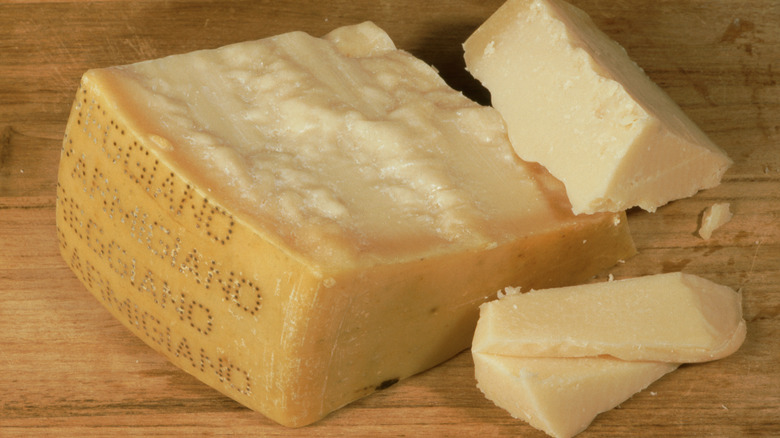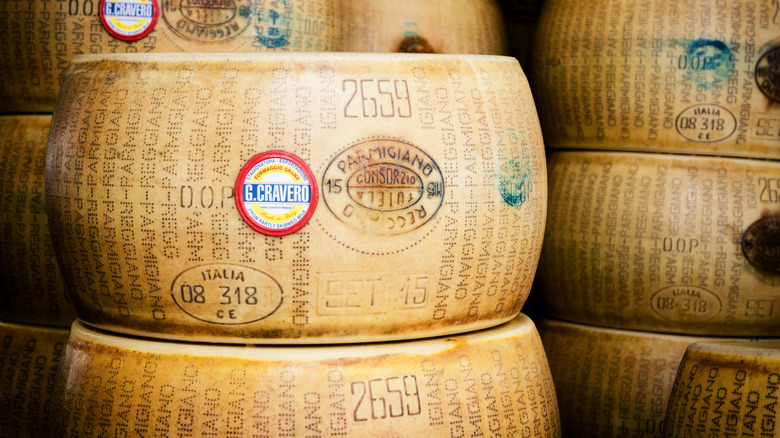Cheese Makers Are Putting Edible Microchips In Your Food - And Here's Why
When we hear the word counterfeit, most of us think of money, designer shoes, or maybe even batteries. It's doubtful that your mind goes to coffee or chocolate, but food can also be counterfeited, and cheese is an unlikely victim, including Italy's renowned Parmigiano Reggiano. It's probably not easy to fake a 90-pound wheel of cheese, but it's profitable, with the Parmigiano Reggiano Cheese Consortium (yes, that's a real thing) estimating that the fake parmesan market is worth about $2 billion annually.
With millions or even billions of revenue at risk, there are many ways that companies fight back beyond the initial step of registering a trademark. Some use anti-counterfeiting measures such as watermarks and holograms or more high-tech solutions like RFID tags and QR codes to help customers verify that they are indeed buying an authentic item. But what is a company to do when the product it hopes to protect is edible? If you make authentic Parmigiano Reggiano cheese, you add a tiny edible microchip into the casein label. Don't run to your kitchen and shake the tub of parmesan cheese that's sitting in your fridge door — that $4 grated Kraft does not have a microchip! The parmesan that many of us use to garnish our spaghetti is made outside of the European Union and cannot be designated Parmigiano Reggiano.
What makes authentic Parmigiano-Reggiano cheese so special?
If you're thinking, wow, the European Union sure takes cheese seriously, there's a reason. Authentic Parmigiano Reggiano is protected by the EU because the process is intensely regulated and region-specific. This cheese must come from one of five regions in Italy: the aptly named Parma, or Modena, Bologna, Mantua and Reggio Emilia. It can only be made with three ingredients, including milk from cows that were raised in that specific region. Those cows have a restricted diet and must be fed only food that is grown in that area. Finally, the cheese must be aged at least one year. The industry is overseen by the Parmigiano Reggiano Cheese Consortium.
This rigorous process means that Parmigiano Reggiano is much more valuable than what we call parmesan cheese. Here in the U.S., a pound will cost you anywhere from $20 to more than $100. Before it's cut into smaller chunks, Parmigiano Reggiano is made in massive wheels that are stamped with "Parmigiano Reggiano" to mark its authenticity, but that's not enough to keep counterfeiters at bay. In recent years, cheesemakers have added tiny silicon micro-transponders called p-Chips, which are made here in the U.S., to the label. These microchips are only about the size of a grain of sand and contain a unique serial number that ensures buyers they are purchasing authentic Parmigiano Reggiano. They've been tested to make sure they will survive the aging process, and are perfectly safe to eat. According to p-Chip, if you do ingest one with your pasta, don't worry — the chips can't be read remotely.

